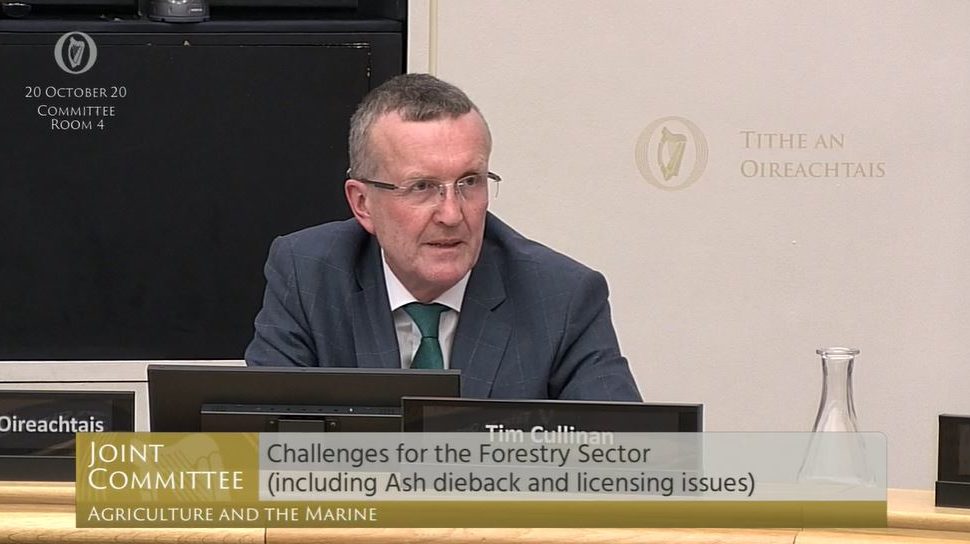Licence Crisis Threatens Forestry Sector That Exports €.5bn Annually

IFA President Tim Cullinan said over 1,000 farmers are caught up in the forestry licence crisis and are facing delays of up to two years.
“The timber shortages as a result of the backlog are threatening the future of the industry that exports approx. €.5bn annually,” he said.
Addressing the Joint Oireachtas Committee on Agriculture, Food and the Marine this evening, Tim Cullinan said the sustainable and timely management of forests is essential to optimise timber production and the economic return.
“The Dept of Agriculture has introduced a two-tier system where larger applications are dealt with as a priority. This discriminates against farmers with smaller forests on their farms. This policy is unacceptable to IFA,” he said.
IFA has several proposals that we want to be introduced as a matter of urgency:
- No farmer has to wait longer than four months, as set out in the Forestry Act 2014
- Review of the Appropriate Assessment screening process
- Introduction of a cost-based planning support
- Amend the 2014 Act to introduce new exemptions for activities such as forest road construction
IFA Forestry Chairman Vincent Nally said the backlog is jeopardising jobs and businesses in the sector. “Sawmillers are being forced to import timber when we would normally be self-sufficient, and this could endanger the national forest estate if pests or disease are brought in,” he said.
The IFA delegation also raised the impact of Ash Dieback. The RUS scheme is wholly inadequate in compensating forest owners for the financial losses incurred.
“The current scheme is forcing farmers to manage a dying crop and to invest money into a crop that will give minimal returns. The latest research suggests the best approach is to harvest the remaining timber and to replant the area with other species,” he said.
Vincent Nally said all plantations must be eligible for a 100% reconstitution grant; forest premia paid on replanted land for 15 years, and the option not to replant.
Concluding, he said the re-introduction of the farmer premium differential would help to address some of the opposition to forestry, as it will contribute to local employment and sustain rural communities.




